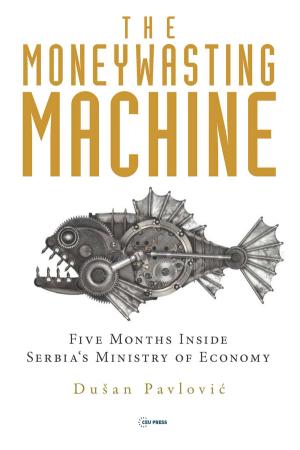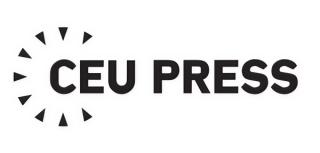Dušan Pavlovic
Dušan Pavlovic is a political economist, currently teaching political economy at the Faculty of Political Science, University of Belgrade, where he is employed as full professor.


For five months in 2013–2014, Dušan Pavlović took time off from teaching to accept a senior position in Serbia’s Ministry of Economy. This short period was long enough for him to make a penetrating diagnosis of the economic activity of the postcommunist government. He found that a coterie of tycoons and politicians live off the wealth of the majority of citizens and smaller entrepreneurs, while the economy performs below its capacities. In academic terms, extractive economic institutions create allocative inefficiency.
Vivid, suggestive, and even entertaining accounts depict how privatization is administered and foreign investment projects are handled, and how party members, relatives, and friends are hired into public administration and state-owned companies. They show how the managers of firms that queue for state subsidies resist the systematic screening of their businesses. The principles of Keynesian economics are distorted and misused to conceal deliberate fiscal mismanagement. Huge ill-conceived development projects siphon taxpayers’ money from “non-economic” activities like social services, health, education, science, and culture.
What Pavlović found in Serbia is acutely symptomatic of many other European post-communist regimes of our time, lending his book singular importance.
Dušan Pavlovic is a political economist, currently teaching political economy at the Faculty of Political Science, University of Belgrade, where he is employed as full professor.

Acknowledgements
1. The Rise of Aleksandar Vučić
The Origin of the Book
The Rise of Aleksandar Vučić
“You Will Not Come to This Show Alive”
The First Million… and a Few More
A Ten-Minute Meeting on Economic Reforms
Keynesian Economics for Fools
2. Overview of the Political Economy of Serbia Prior to 2012
Serbia as Part of Yugoslavia (1918–1989)
Serbia Under Milošević (1990–2000)
The Fall of Milošević and the DOS Coalition (2000–2012)
Serbia under Aleksandar Vučić (2012–2014)
3. Extractive Institutions
The FAP Workers’ Protest
Is It Rational to Delay Reforms?
The Etihad Contract
Fast Lane Economy
4. Party Patronage
The Meeting at the Delfi Bookstore
“I’ll Put Together a Fabulous Team”
The First Meeting of the Team
Party Patronage in the Ministry of Economy
The Car, the Office, and the Secretary
Coping with Party Patronage in the Ministry
5. The Four Economic Policy Strategies
A Rich Friend Comes to Help
“Only a Madman Would Abolish Subsidies”
The Meeting with the Galenika Creditors
Michelin “Invests” in Serbia
The Fiat Subsidy Per Car
Where Are the Contracts with Gorenje?
The Frankenstein Ministry
6. Inside the Money-Wasting Machine
The Emergence of SIEPA
“We Have Never Done That”
Civil Servants in the Serbian Public Administration
Protection
The Development Fund
Figures in the Ballpark
The Fund’s Clients
7. Privatization
Privatization as a Part of the Money-Wasting Machine
Privatization: The Second Run
The 2001 Privatization Law
The Enterprises in Restructuring
The “ID Cards”
More is Less?
Less is More?
The Five Steps
“Hang On, Are We Supposed to Read Those?”
Privatization of Vršački Vinogradi
A Firm for a Luxurious Chocolate Box
The Privatization Agency
“Give Me Back My Money!”
8. The ....